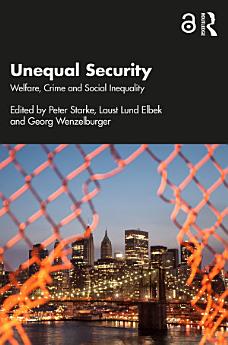Unequal Security: Welfare, Crime and Social Inequality
About this ebook
Bringing together disciplines such as political science, criminology, sociology, and anthropology and combining quantitative and qualitative studies from a wide range of rich and middle-income countries, this collection presents a new framework for exploring the two key social challenges of our times – insecurity and inequality – together. The volume analyses the nature, causes and distribution of subjective insecurities and how various actors use or respond to unequal security. The essays cover a host of themes including the unequal spatial distribution of (in)security, unequal access to security provision in relation to crime and welfare, the impact of insecurity on political attitudes as well as policy responses and the political exploitation of insecurity.
An important contribution to debates across several social scientific disciplines as well as current public debate on insecurity and politics, the volume will be of great interest to scholars and researchers of criminology, social policy, peace and conflict studies, politics and international relations, sociology, development studies and economics. It will also be of interest to policymakers and government think tanks.
About the author
Peter Starke is a political scientist and a professor at the University of Southern Denmark. Based at the Danish Centre for Welfare Studies (DaWS), he specializes in comparative public policy research and political economy.
Laust Lund Elbek holds a PhD in social anthropology (Aarhus University 2020). His work broadly concerns the ways in which the state makes itself present in politically, economically, and/or geographically marginal places.
Georg Wenzelburger is a political scientist and holds the Chair of Comparative European Politics at Saarland University. His research is centred on the comparative study of public policies with a focus on Western Europe.





